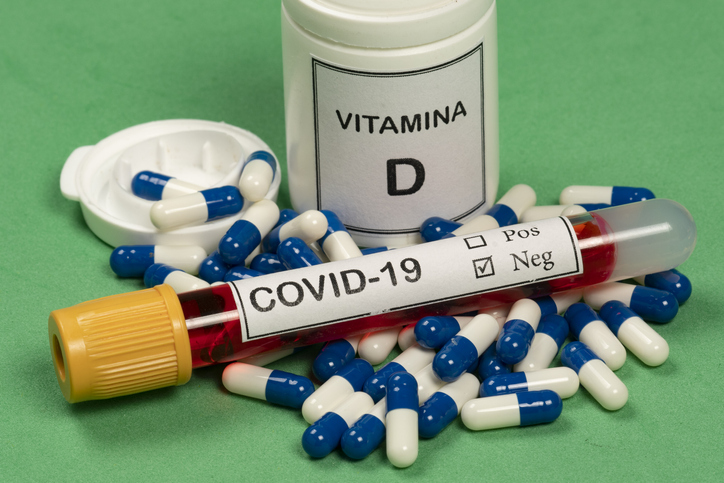Getting Some Sun Is More Important Than Ever This Summer

By Joy Stephenson-Laws, J.D.,Founder
This is a challenging summer, but we have to stay strong and continue to be proactive. I may sound like a broken record, but getting outside to get some sun and vitamin D is extremely important right now.
Also known as the ‘sunshine vitamin’ (because we get it from the sun’s ultraviolet rays), vitamin D is a critical nutrient for bone and muscle health.
There are not many foods that naturally contain vitamin D. Some products in the grocery store, like orange juice, are often fortified with vitamin D, but you mainly have to depend on the sun in order to get an adequate, natural intake of vitamin D.
Vitamin D is important to our overall health for a number of reasons. In addition to helping the body maintain strong bones by assisting in the absorption of calcium, this nutrient helps our muscles move by encouraging nerves to carry messages between the brain and every body part.
Furthermore, “...the immune system needs vitamin D to fight off invading bacteria and viruses,” reports the National Institutes of Health’s Office of Dietary Supplements.

Due to COVID-19, the virus we all obviously want to prevent or be able to successfully fight off should we contract it, there has been a lot of talk about vitamin D.
One study from 2017 found evidence which suggested that vitamin D supplements may provide protection against acute respiratory infections (including colds and flu).
In addition to this, there is evidence that vitamin D supplementation may reduce the occurrence of asthma attacks (which are often triggered by viruses).
And as far as the immune system is concerned, “Vitamin D modulates the response of white blood cells [also called the body’s immune system cells], preventing them from releasing too many inflammatory cytokines. The COVID-19 virus is known to cause an excess of pro-inflammatory cytokines,” according to one report discussing a recent European study that explored COVID-19 cases and mortality rates across 20 European countries.
Now, a very recent study based in Israel suggests that having low blood levels of vitamin D “..appears to be an independent risk factor for Covid-19 infection and hospitalization,” according to one report discussing the study.
Researchers of this study examined an Israeli cohort of 782 patients with COVID-19 and 7,025 people who did not have coronavirus.
“The main finding of our study was the significant association of low plasma vitamin D level with the likelihood of Covid-19 infection among patients who were tested for Covid-19, even after adjustment for age, gender, socio-economic status and chronic, mental and physical disorders,” said one of the leads on the study.
A higher risk of hospitilization.In addition to this, having low blood levels of vitamin D was also associated with higher risk of hospitalization due to having COVID-19. Actually, this particular finding was not very significant after adjusting for other factors. However, if you contract COVID-19 it would be nice to be able to recover in your own home. Our healthcare system is overwhelmed and, of course, no one wants to be in the hospital. It is important to do everything in your power to prevent this virus or have the mildest case possible if you get it.
So how much vitamin D should we all be getting exactly?
Well, it depends.
One of the doctors of the study said that the amount of vitamin D should be “...personalized and take into account patients’ age, gender, race and ethnicity, nutritional status and health condition.”
Vitamin and mineral deficiencies are very common in older people, and older people are considered high risk for complications if they contract COVID-19. This is why it is extremely important to take routine nutrient tests in order to definitively determine if you have any nutrient imbalances or deficiencies. If you do, a competent healthcare professional can work with you on diet changes, supplementation if necessary and how to naturally get more vitamin D in your life.
If you are not someone who spends a lot of time outdoors, try to get in the habit of changing this (even if it is just for a few minutes a day). With that said, it is still extremely important to protect yourself properly from the sun in order to help prevent skin cancers.
To see general guidelines regarding how much vitamin D you may need according to your age and gender, click here.
It’s also important to acknowledge other nutrients, such as vitamin C, that are crucial for protecting our immune health and helping prevent and fight COVID-19. Check out this pH Labs blog on what you can do to help keep your immune system in top shape.
And try to avoid what I like to call some of the top five offenses to immune system health:
- Excessive consumption of alcohol (Too much booze promotes inflammation throughout the body, disrupts sleep and depletes nutrients).
- Smoking (Obviously, smoking right now especially is a horrible idea. You want your lungs to be in top shape should you contract COVID-19. Smoking also depletes essential nutrients from the body).
- Ultra-processed foods (These pro-inflammatory, nutrient-void foods will not do anything good for your immune system. They also promote diseases such as obesity, hypertension and diabetes, which are major risk factors for complications from COVID-19. Go for plenty of fresh fruits and veggies instead).
- A sedentary lifestyle (Sitting all day has been called ‘the new smoking.’ Regularly moving your body helps ease stress, gives the body an immune boost and may even help promote better sleep).
- A lack of sleep (Sleep is so important to our immune system health. I’m sure we can all relate to being sleep deprived and then, as a result, getting sick. Luckily, avoiding all of the offenses mentioned above can promote better quality sleep).
Keep going. We got this!
Enjoy your healthy life!
The pH professional health care team includes recognized experts from a variety of health care and related disciplines, including physicians, attorneys, nutritionists, nurses and certified fitness instructors. This team also includes the members of the pH Medical Advisory Board, which constantly monitors all pH programs, products and services. To learn more about the pH Medical Advisory Board, click here.







